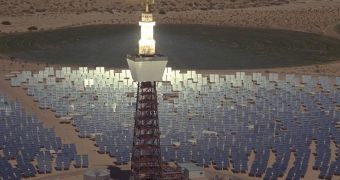According to experts, Japan could switch from using fossil fuels and nuclear fission to renewable sources for its energy demands by 2050. The issue as to whether the will to do so exists is another matter entirely. But studies show that it's feasible to contemplate this idea.
The Asian nation would become the first in the world to do so. The issue is that, at this point, it's very costly to switch to alternative sources of energy. Technologies harnessing the power of wind, the Sun, thermal springs and the ocean are still pretty much in their infancy.
Still, that is not to say that the switch will never be possible or affordable. Growing economic interest in renewable energy is seeing more and more innovations being brought to this area of science.
It's not such a stretch to believe that a decade or two from now, renewable energy will be a lot more accessible and efficient than it is today. Couple that with the fact that oil prices will continue to go up, and you get the perfect setup for shedding old habits, and adopting new ones.
Analyses such as this one were again brought into the spotlight following the crisis at the Fukushima Daiichi nuclear power plant. The facility was severely affected by the March 11, magnitude 9.0 earthquake that hit Japan. The subsequent tsunami further increased the damage.
Given the tough struggle authorities are still having in brining the reactors back under control, some are calling out for a thorough review of national energy policy. Analysts are saying that shifting research and funding focus to alternative energy sources is precisely what the country needs right now.
But the Japanese Ministry of Economy Trade and Industry is not very keen to do so, as demonstrated by the recent statements its representatives made. They said that nuclear power is still of paramount importance for the nation, given that “renewable energy alone isn’t sufficient” to meet its needs.
A rough cost analysis suggests that Japan would need $1.01 trillion to produce 203 gigawatts (GW) of solar capacity, the necessary amount to meet its electricity demands. It would also cost about $375 billion to build the wind farm infrastructure required to produce the 152 GW of wind-based electricity.
The latter option, though cheaper, would require wind farms to occupy 50 percent of the country's land-mass, which is obviously unacceptable, Our World reports. But analysts are concerned that the nation will now return to building fossil fuel-powered plants to compensate for Fukushima's loss.
It will be interesting to watch what happens in Japan over the coming months, as reviews of future nuclear power plants are being reconsidered. The measures the Asian nation adopts will have a tremendous impact on global energy policies, including those of the US, China and India.

 14 DAY TRIAL //
14 DAY TRIAL //